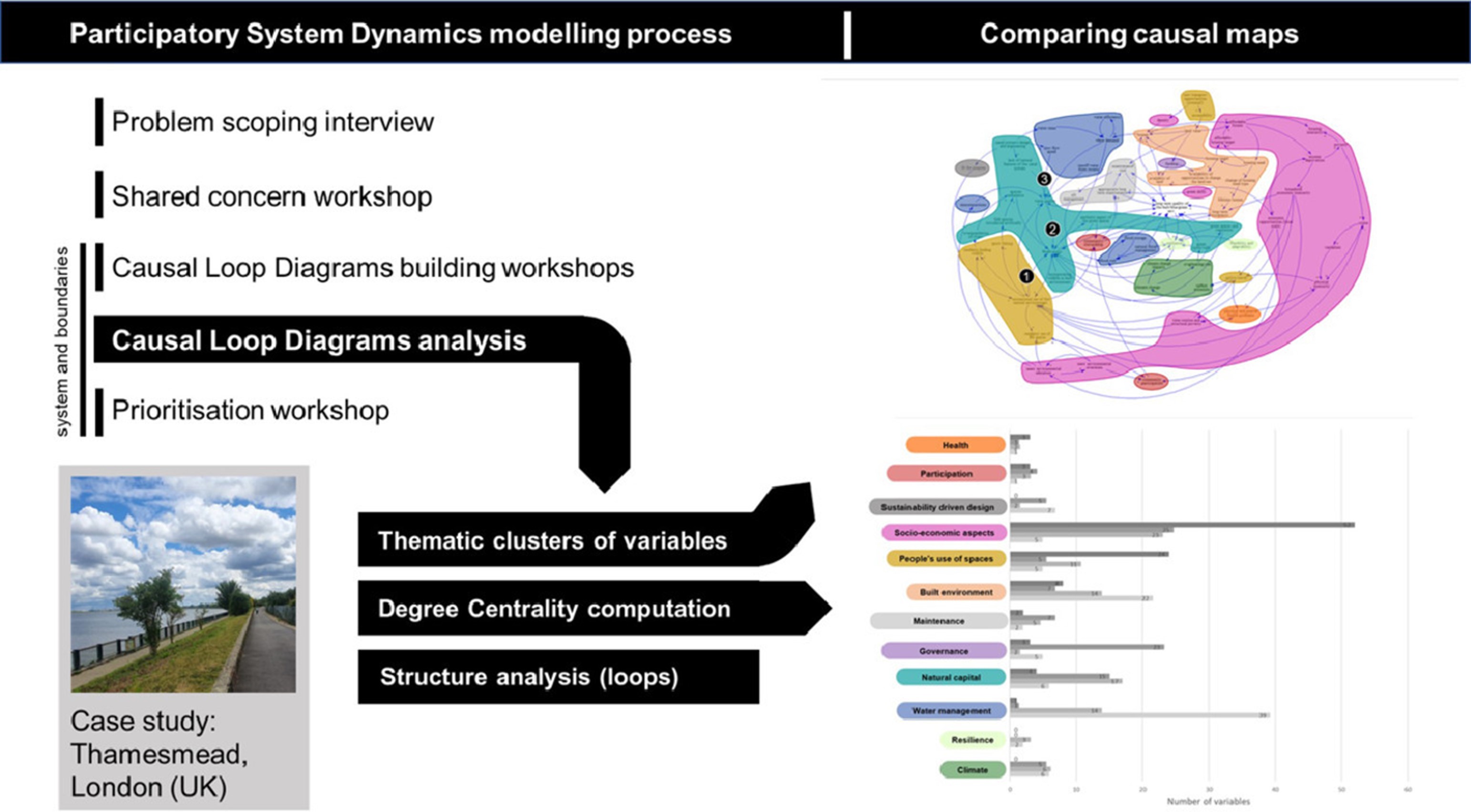
Comparing Qualitative Models
An analysis and comparison of how different groups of stakeholders perceive the same issue, portrayed through impactful visualisation techniques.
UCL Team
Author
Contact UCL Team
Email
Details
This work bridges notions from Operational Research, System Dynamics and Organisational Studies and innovates by combining well-established procedures from qualitative research with methods to analyse and compare causal loop diagrams (CLDs) and more generally causal maps. The research is based on the activities carried out for the urban regeneration case study in Thamesmead (London, United Kingdom).

The main objective of the CLDs comparison is to identify the differences in understanding the system boundaries of the shared concern within the case study (i.e., Thamesmead) to support further discussions. To complement existing mathematical ways to compare CLDs, we colour-coded the variables in the CLDs based on the identified thematic cluster. We used same-colour shading of variables belonging to the same thematic sector. This produced colourful visuals that intuitively portray the thematic content of the CLDs, and thus the diverse groups’ mental models. Such a comparison offers insight into the similarities and differences of different stakeholder groups’ perception of an issue, underlining factors influencing the shared concern and representing relatively separable parts of the shared concern.
This work was co-funded by the CUSSH (Complex Urban Systems for Sustainability and Health) and CAMELLIA projects.
Keywords:
System Dynamics, Causal Loop Diagrams, Problem Structuring, Stakeholders, Thamesmead, System boundaries
Links:
- Pluchinotta I., Salvia G., Zimmermann N., (2022) The importance of eliciting stakeholders’ system boundary perceptions for problem structuring and decision-making, European Journal of Operational Research, 302(1) https://doi.org/10.1016/j.ejor.2021.12.029 ❐
- Salvia G., Pluchinotta I., Tsoulou I., Moore G., Zimmermann N. (2022). Understanding Urban Green Space Usage through Systems Thinking: A Case Study in Thamesmead, London. Sustainability, 14(5): 2575. https://doi.org/10.3390/su14052575 ❐